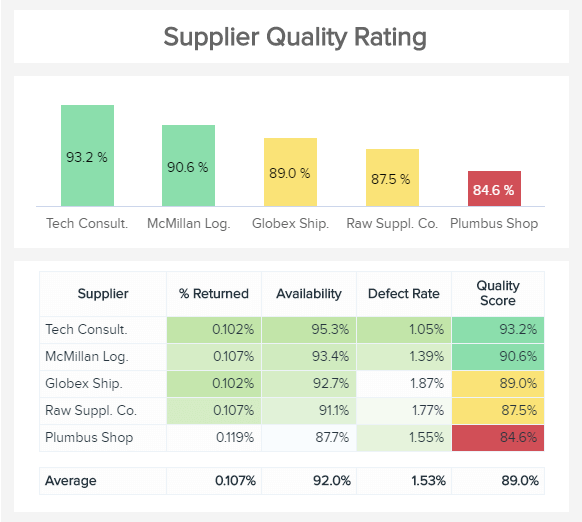
Procurement KPIs & Metrics See Procurement KPI Examples
Definition of procurement KPIs Key performance indicators (KPIs) are measurements of the efficacy of a business department, process, or strategy. They are essential to measuring the costs and reliability of a business strategy, as well as the performance and results.

Procurement Key Performance Indicators and Metrics
Procurement KPIs are measurable metrics used to evaluate and track the performance and effectiveness of the procurement process within an organization. KPIs play a crucial role in optimizing and regulating various aspects of the procurement process, including quality, time and cost to achieve operational excellence. Gain insights into the.
Procurement KPI Dashboard Customizable Excel Template with Example
The following four procurement KPIs represent a solid starting point for understanding the health of your procure-to-pay cycle. 1. Total cost savings Ultimately, procurement aims to acquire necessary goods and services in as cost-effective a way as possible.

Numerous procurement KPIs will ensure your purchasing processes are on
The following 12 procurement KPIs can help you measure the effectiveness of your procurement process and identify any areas where action is needed: Compliance rate Supplier defect rate Supplier lead time Number of emergency purchases Purchase order cycle time Supplier availability Cost per invoice E-invoices as a percentage of the total

Procurement KPI examples Procurement management, Contract management
What is KPI in procurement? Briefly, you use procurement KPIs to analyze and advance the success of your procurement business or departments in your company. They are the key metrics to measure performance. Why should you track procurement KPIs?
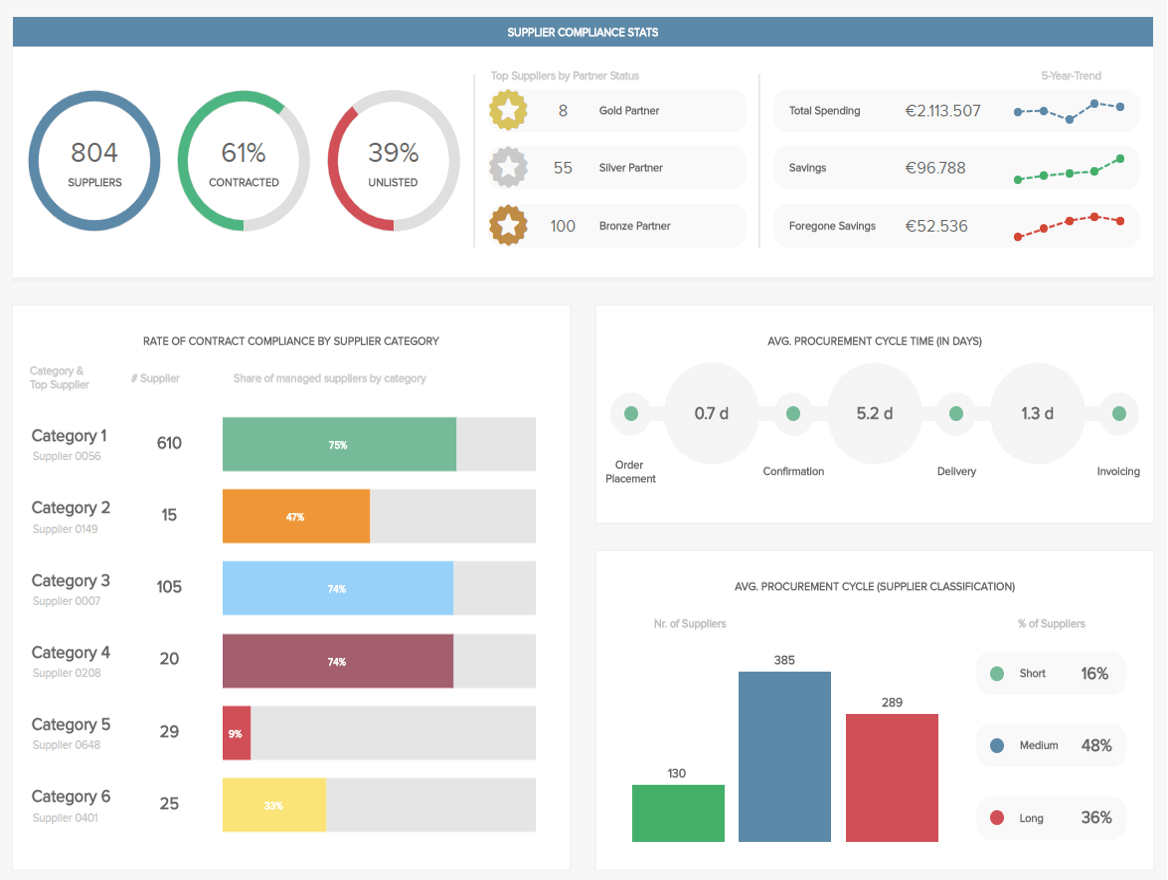
Procurement Dashboards See Great Examples & Templates
Supplier Availability - This procurement KPI measures a supplier's response to urgent requirements and can help you determine the reliability that can be placed on individual suppliers. Ideally, supplier availability of 90% and above is a sign of good supply chain efficiency.

Procurement KPIs and Balanced Scorecard
This document suggests common key performance indicators (KPIs) used by purchasing offices to take a data-driven approach to improve procurement operations. Each KPI can be categorized according to several different criteria: • Strategy: The Government Performance Lab's Procurement Excellence Framework is a set of
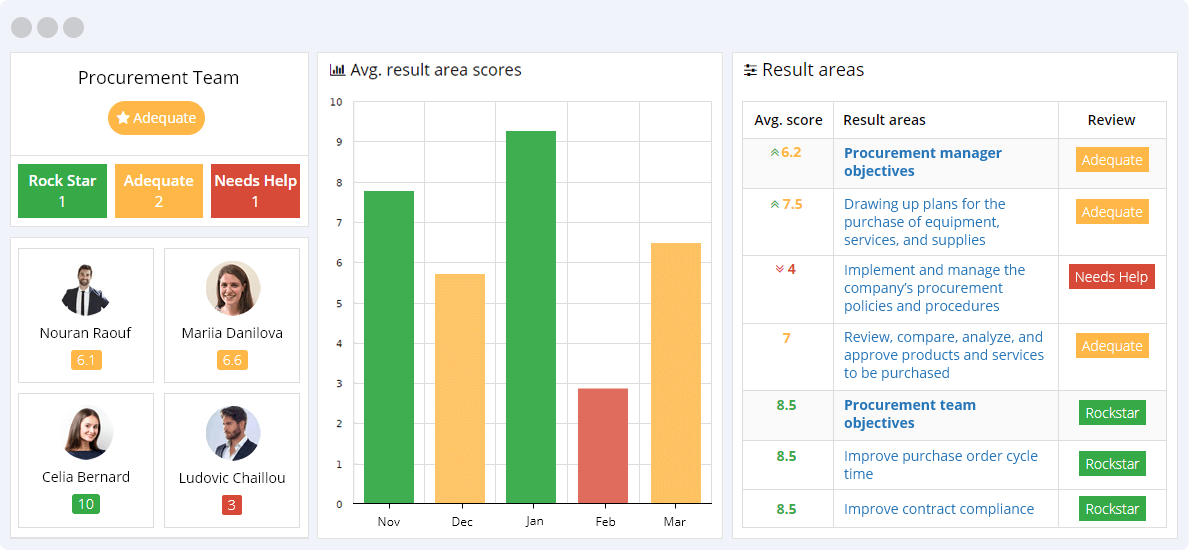
22 Essential Procurement KPIs You Should Be Measuring This Year
Here are six indispensable procurement KPIs that provide valuable insights into procurement performance, aiding in informed decision-making. 6 Procurement KPIs That Every Procurement Team Should Track. The below-mentioned procurement KPIs can help you monitor your team's progress, identify areas for improvement, and make data-driven decisions. 1.
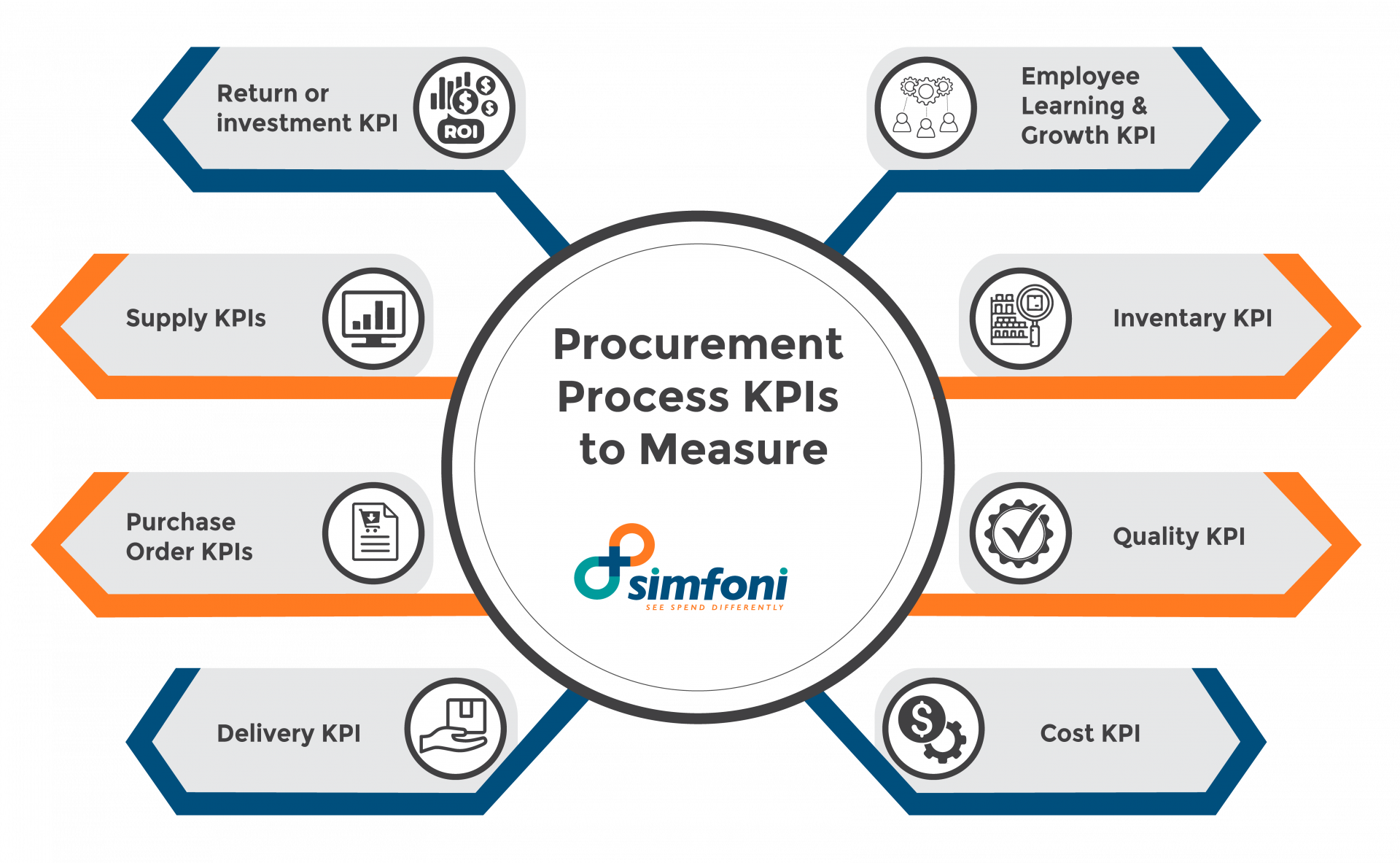
️ Procurement 101 How to Optimize Procurement Process Flow?
Procurement KPIs allow project teams to monitor and share progress in a transparent and objective manner. The purchase order cycle times are a crucial procurement KPI.. A well-established KPIs can help companies to identify opportunities, manage supplier risks, and streamline the procurement processes. The Need for KPIs in Procurement

Are you using KPIs in your procurement process?
KPIs (key performance indicators), also called metrics, are designed to measure the performance and effectiveness of procurement management. Procurement KPIs can track all relevant aspects of purchasing or acquiring goods and services. We've all heard the saying "what gets measured, gets managed".

Procurement KPI Metrics Kpi, Procurement, Procurement management
Procurement KPIs convert raw data into actionable metrics that typically are classified into four key areas : Quality Inventory Delivery Cost-savings. But note that every business has KPIs unique to its operation, and some of those may fall between or outside these categories. Quality KPIs
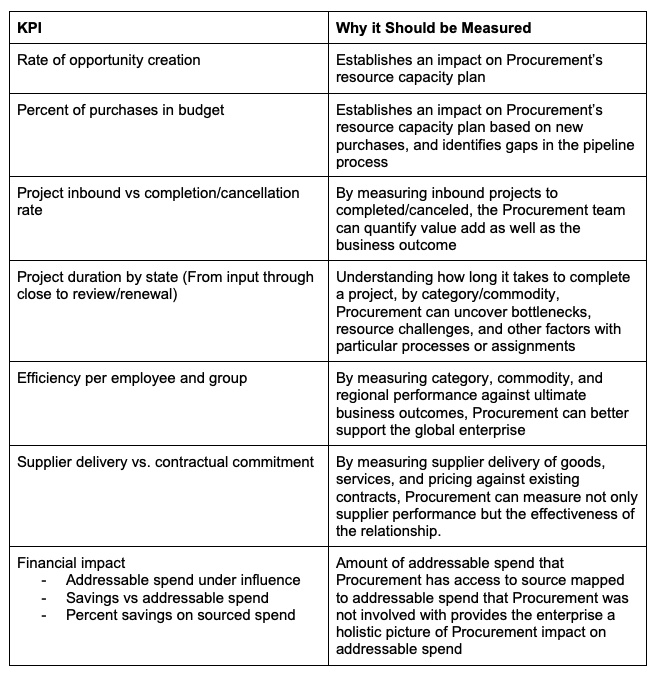
Measurable Success 7 New KPIs to Optimize Your Procurement Pipeline
What are procurement KPIs? Procurement KPIs are a type of performance measurement tool that are used to evaluate and monitor the efficiency of an organization's procurement management. These KPIs help an organization optimize and regulate spending, quality, time, and cost.

Discover procurement KPIs with an interactive dashboard Procurement
Purchasing KPI is a performance evaluation tool used to evaluate and monitor the efficiency of the organization's procurement management. These KPIs help organizations optimize and manage expenditure, quality, time, and cost. In addition, procurement KPIs can help companies keep up with their overall process goals, procurement strategies and.
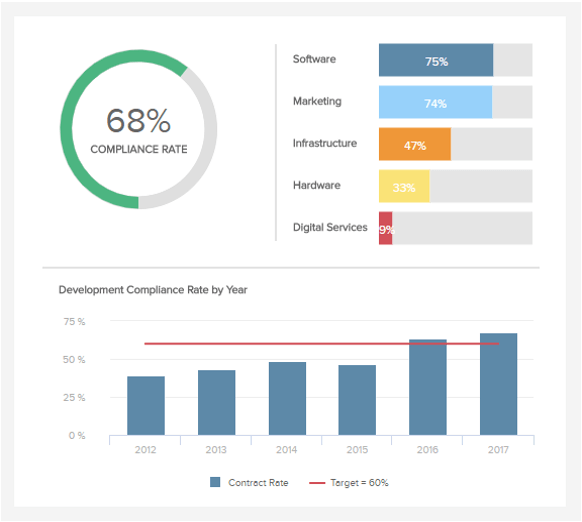
Procurement KPIs & Metrics See Stunning KPI Examples
To simplify the management of the purchasing function, the purchasing monitoring KPIs can be classified into 3 main categories: The productivity of the purchasing team. The effectiveness of the implementation of supplier contracts. The appropriation of the purchasing policy by the business lines.
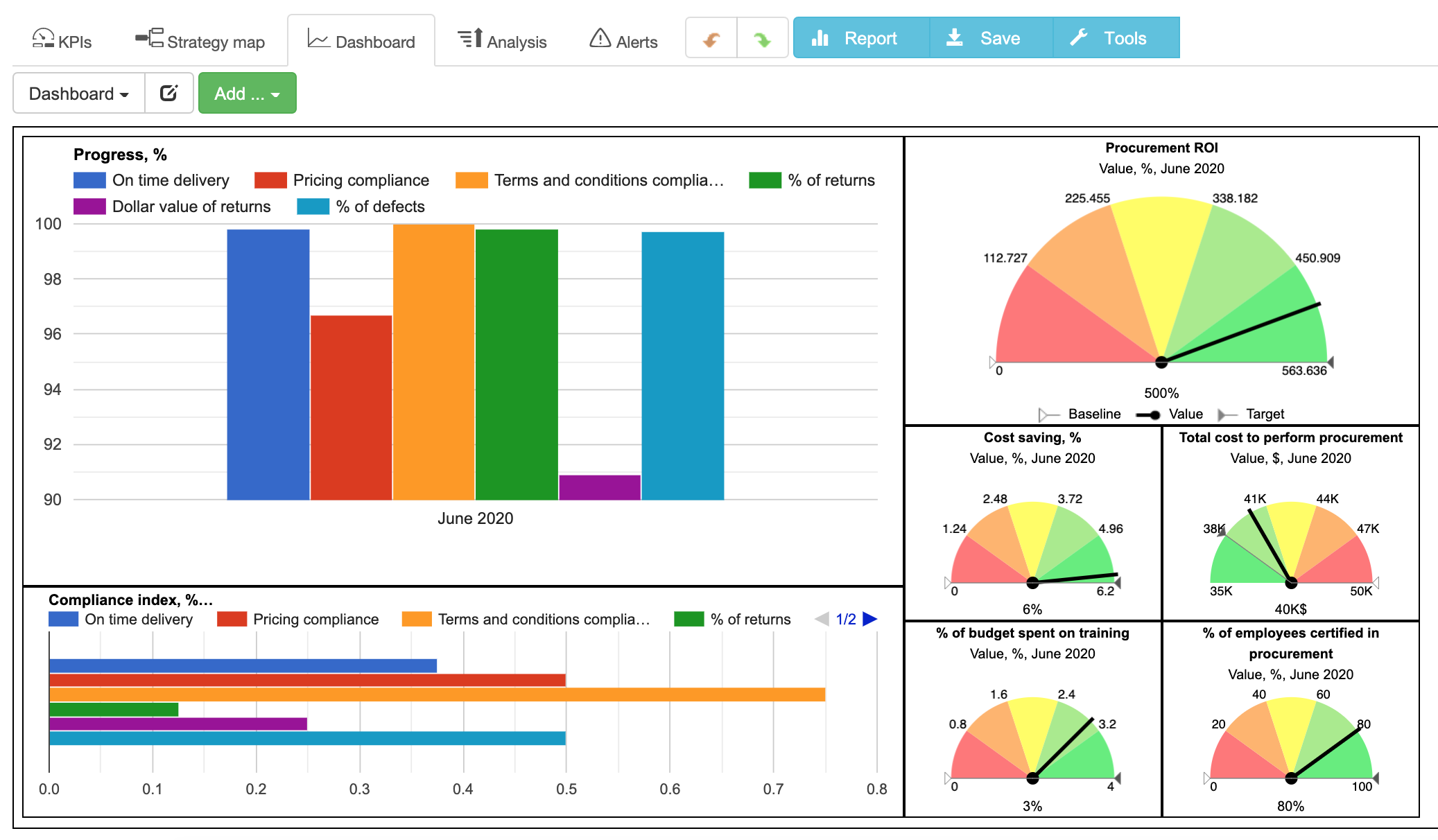
Procurement KPIs and Balanced Scorecard
A procurement KPI or metric is a measurable value that tracks all relevant aspects of obtaining or buying goods and services. These KPIs enable the procurement department to control and optimize the quantity, quality, costs, timing and sourcing of purchasing processes.

Top 10 KPIs to benchmark your Sourcing & Procurement function
The answer is simple: through KPIs. Keep reading to learn in detail about the top 13 most crucial procurement metrics, how to track them, and what to focus on to drive the most value to your company. What Are Procurement KPIs, and Why Use Them? Procurement KPI Categories Cost-saving KPIs Quality KPIs Delivery KPIs Inventory KPIs What to Focus On